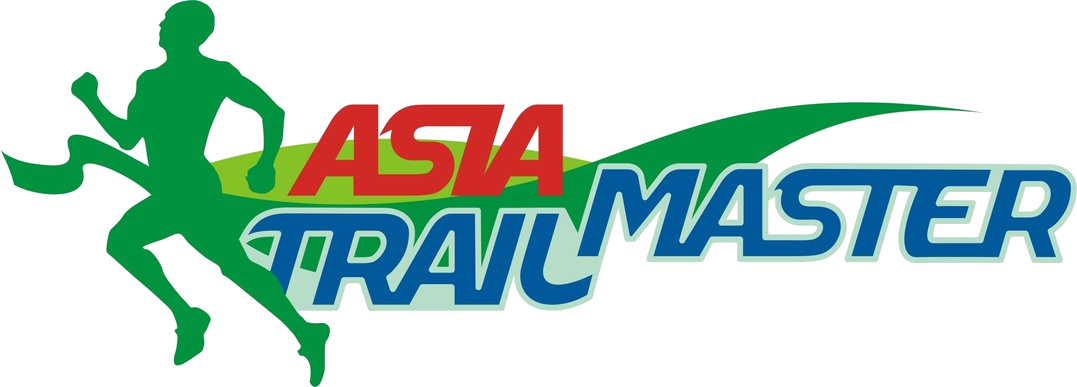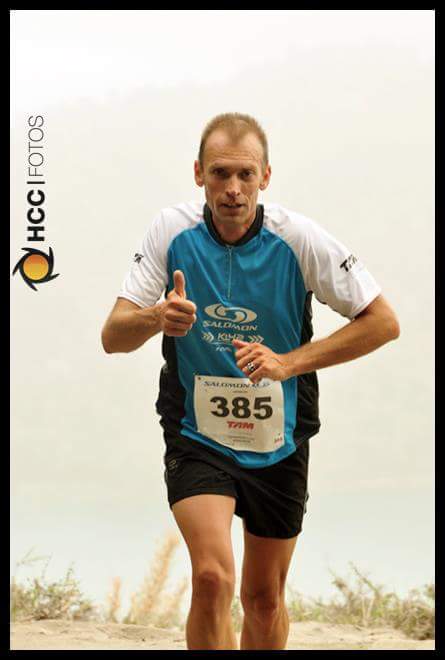Penang Eco 100 this weekend has attracted a stellar line-up of protagonists in the Asia Trail Master Championship series. On the start list for the Malaysia SuperTrail is also a whole delegation from Indonesia, a country which has produced several outstanding trail runners in the past two years. Among them, and arguably the latest running star coming from Java, at least in the women's category, is 27-year-old Ruth Theresia. Ruth only got into competitive running about two years ago, but her progress has been more than remarkable. Hailing from Bandung, place of her mentor and male ATM championship leader Arief Wismoyono, Ruth Theresia won the last three ATM races she took part in and is aiming for more, a lot more. The upcoming race in Penang will be her first attempt at the 100 miles distance. If she proves successful, Ruth Theresia will have a significant shot at the Asia Trail Master championship title later this year. Not bad for someone who can certainly still be called a "newbie" in trail running! High time to get to know Ruth Theresia a little bit better.
By K. Van de Velde
Q: first of all, could you briefly present yourself to the people who may not know you. Where do you come from, and where did you grow up?
RT: My name is Ruth Theresia. Actually people call me Irut. I come from Bataknese family. I was born 27 years ago in Jakarta. I grow up in Jakarta until graduate my senior high school, then I move to Bandung to continue my study at Telkom University (Industrial Engineering program) in 2008 and currently stay here. I am the eldest children in my family. I have 2 young brothers, and I haven’t married yet.
Q: What do you do for a living?
RT: After I graduate my bachelor program in 2013 I work as a banker until mid of 2016. Then I resign from office. Now my daily activities just for sport. Do the running program, sometimes play basketball and ride my bicycle.
Q: have you always been sporty?
RT: Yes. Before I run, I was a basketball athlete. I play basketball since the age of 13. I play in several national basketball competition and for a pro basketball club (Rajawali Bandung). After I quit from my club, then I join Bdg Explorer in September 2015.
Q: what attracted you to running, and in particular trail running?
RT: Basically, when I started to run I didn't have any plan to join running competitions. I run just for maintaining my condition, so that I am still fit when I play basketball. Before I join Bdg Explorer, I join BR20 runners first. It is one of Bandung run community, their passion is in road run. In July 2015 my crew influenced me to join a road race. My first time race was in Singapore. I found something new in running. Then I continued to participate in a marathon in the next month until I got to know Bandung Explorer in September. That was the first time I learnt about trail running. I was curious, then I join BTS 70K in November 2015. That was my first experience in mountain-ultra-trail race. When I am in a road run, I feel bored of the track because of the flat route and it's mostly asphalt. In trail I can see beautiful scenery, run on varried terrain, and combine running with hiking. I also learn about self management and strategy in ultratrail races. Second reason is because I see a big opportunity in trail running, esspecially in Indonesia.
Q: did you have any idols as a youngster?
RT: Yes absolutely, Mira Rai. She is young, strong, fast, talented, and inspired me in trail running.
Q: can you describe your first ever running race?
RT: My very first time running race was the Singapore Sundown Marathon 2015. It was my first race experience and I took full marathon. I finished it quite close to the finish cut off time. I felt exhausted and almost the whole of my body felt stiff. People said that I am a desperate runner at this time. I have my own reason, because I want to challenge myself and feel the sport competition atmosphere. I got addicted to running. Then I join others marathon race the following month.
Q: you made a remarkable progress in a very short time, and arguably are the woman-to-beat in Indonesia these days. You won the last 3 ATM races you took part in. How would you explain this jump in performance?
RT: It began when I participated in MesaStila Peaks Challenge 2016. It was my second time in a mountain-ultra-trail race after BTS 70K in 2015. I finished 10th place in that BTS 2015. The gap in time was almost a year to MPC 2016. I had started to train and joined several local trail races (not ATM qualified). As a junior to join MPC last year, I had only set "to finish" as a target, I had never dreamt to catch the podium. But finally I could finish in 2nd place of the women category. MPC 2016 was my moment. The great result became a trigger for me. Then, I went back to BTS 2016 for 102K and finished as 1st women. Both results made me set another target. I feel optimistic and motivated in 2017. I also receive great support from Bgd Explorer team. I train with experts and get running program from a coach. So, I quit my daytime job and have begun as a serious trail runner. Thankfully, I had background as a basketball athlete already, So I have felt the sport competition vibe before and already built a strong mental strength.
Q: What is your ambition in trail running?
RT: I can represent Indonesia in international trail running races, become an Indonesia mountain trail running ambassador, and inspire Indonesian women to get fit and be brave to do sport, especially trail running.
Q: Coming back to idols, are there any Indonesian role models for you?
RT: Arief Wismoyono. One of my role models in Indonesia and my training partner.He shares much his experiences and give some advices to us. He is so humble, so we never be afraid to ask him about training program. When I train with him, he always support me and never leave me far from him. It makes me to follow his pace.
Q: How often do you train per week?
RT: 6 times in a week, 1 day rest on Monday.
Q: what about road running? I have noticed you have a fast pace on the road as well, what's your best time on the road marathon?
RT: Not so fast hahaha.. My last timing is 4 hr 18 minutes at Jakarta Marathon 2015, then after that I never participate in road marathon anymore.
Q: What is your favourite race and why?
RT: Vibram HK 100. Very well organized, nice weather to run, and I can meet and share the experience with some elite runners.
Q: Did you ever experience the runner's high?
RT: Never so far
Q: You are attempting the 100 miles at Penang Eco 100, which is a very big challenge given the cut-off time. How do you feel a few days before the race?
RT: I feel excited but nervous. This is one of Asia Trail Master's super trail races, so I am ambitious to get the bonus championship points. But I feel nervous because this will be my first 100 miles experience.
Q: Penang Eco 100 is indeed the Malaysia SuperTrail and has 575 ATM championship points on offer for the race winner. If you manage this, you are putting pressure on Tahira Najmunisaa and may even become the woman to beat in this year's ATM championship. Is that a goal for you?
RT: Yes. Penang Eco has the biggest points on offer for the 100 miles. It is one of my red circles on my ATM race calendar this year. So I have to finish it to boost my ranking.
Q: Last year at MesaStila, Tahira finished clearly ahead of you. Do you think you can get closer to her this year ?
RT: She really did great last year and her performance has even increased this year, it seems. It was our first head to head at Mesastila, but I am optimistic to get closer to her this year.
Q: Just one week after Penang, you are also on the start list of Ijen Trailrunning. Do you think you will be recovered in time?
RT: I hope so. If I am still fit I will continue to run in Ijen. I will discuss to my therapist for the recovery after Penang Eco.
Q: Have you ever competed against Sandi Menchi from Philippines, another ATM title pretender this season?
RT: Never, I haven’t competed against her.
Q: do you enter a race with a specific strategy in mind?
RT: Yes. First I learn about my competitors to find out my position, then I learn about the maps, elevation gain, weather forecast, and the terrain to project my finishing time. I study the water statiion distance to set my refuel energy plan.
Q: Would you like to represent Indonesia at the Trail World Championships?
RT: Absolutely, especially in UTMB and UTWT
Q: Any Indonesian race you would like to see in ATM?
RT: Bandung Ultra 100, Mantra Summit Challenge, Rinjani Ultra 100, and GP Ultra 100
Q: What is your favourite piece of running music?
RT: All kind of up-beat music like RnB or pop music. Because it helps me to get a good mood during the race.





























































